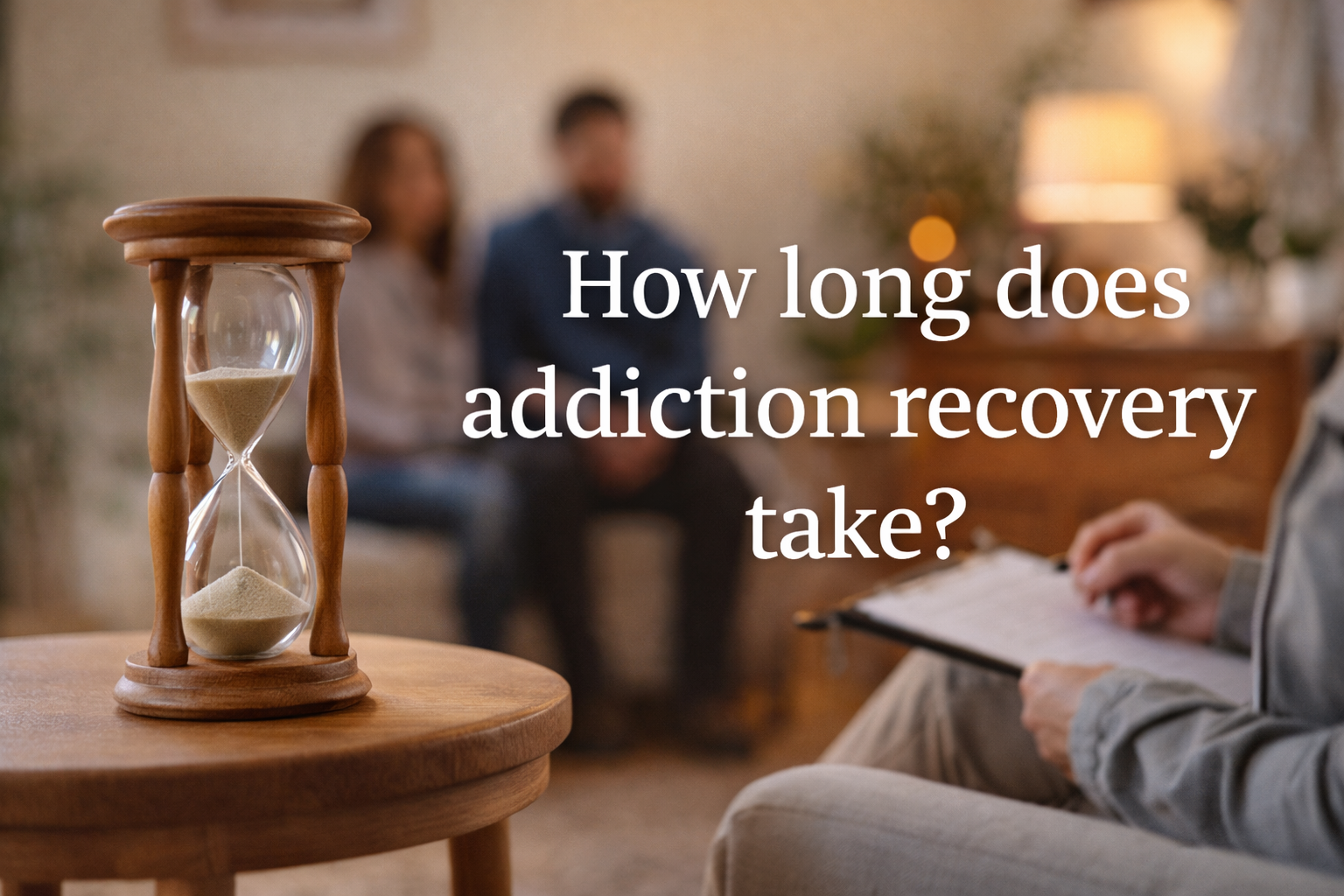What is Detoxification?
Detoxification, commonly known as detox, involves eliminating drugs or alcohol from the body that a person has ingested. The goal of detox is to safely handle the withdrawal symptoms that occur when someone stops using drugs or alcohol.
Detoxification plays a crucial role in attaining sobriety from alcohol and drugs, given that withdrawal symptoms can vary in intensity based on the substance and duration of usage. The longer an individual has been dependent on drugs or alcohol, the more intricate the detox process may become.
Withdrawal from alcohol, especially, can be life-threatening, particularly for those with severe dependency. Delirium Tremens (DT) is a potentially fatal condition characterized by seizures and death if left untreated. Seeking professional medical assistance during detox is imperative to prevent the onset of DT.
What Are The Types Of Detoxification?
Detoxification can be classified into two main types: Medical detoxification and natural (non-medical) detoxification:
Medical Detoxification:
It is a supervised process that involves the use of medications and medical care to help individuals safely withdraw from drugs or alcohol while managing withdrawal symptoms and reducing health risks.
Natural or Non-Medical Detoxification:
It is the process of allowing the body to eliminate toxins without medical intervention, typically through lifestyle changes such as diet, exercise, and stress reduction techniques.
What Are The Differences Between Medical And Non-Medical Detoxification?
The main difference lies in the use of medication. Medical detox uses medicines to help clients withdraw from substances. Whereas, non-medical detox does not use drugs for that purpose. Besides this, here are some other differences between these two methods of detox:
Location:
Medical detox occurs at a hospital. At Solace Asia, our clients receive medical detox care at our host hospital, Jesselton Medical Center (JMC). Patients and their loved ones receive around-the-clock care in comfortable rooms with modern amenities to support the detox process. Our attending doctor at JMC is trained in detox procedures following international guidelines and standards outlined in TIP 45 (Treatment Improvement Protocols). This ensures that patients receive the same level of attention for detox as they would anywhere else in the world.
Non-medical detox takes place at our treatment center, where clients have space to recover from their substance use. They receive support from peers who have undergone similar experiences.
Caregivers:
In medical detox, the process is conducted within a hospital setting under the supervision of a qualified physician and nurses who are solely focused on medical care. Their responsibility is to oversee the detoxification process and release the patient once they are free from substances.
Non-medical detox takes place in our treatment center, where our dedicated team of clinicians, including counselors, recovery support coaches, interns, and nursing staff, manage the process. They provide a supportive environment akin to being cared for by your family members. This level of care is particularly crucial for addressing emotional issues during detoxification.
Substances:
Medical detox involves the use of prescribed medications tailored to the specific substance being detoxified. Examples of medications utilized include, but are not limited to:
- Benzodiazepines
- Antidepressants
- Opioid agonists
- Non-opioid agonists
- Opioid antagonists
- Partial agonists and antagonists
Some of these medications may have addictive properties and require careful tapering, which involves gradually reducing the dosage based on a predetermined schedule. These medications are aimed at mitigating the adverse effects of withdrawal symptoms, focusing on alleviating discomfort during detoxification. Therefore, supervision by a medical professional is essential to prevent further drug dependency or severe withdrawal side effects, both of which are detrimental to long-term recovery.
Non-medical detox may incorporate nutritional supplements and herbal remedies to support the detox process. Our in-house nutritionist oversees clients' dietary needs, providing personalized food plans and monitoring. Additionally, the nutritionist offers dietary advice and support to enhance detoxification efforts. Proper nutrition plays a vital role in cleansing the body from the harmful effects of drug or alcohol addiction.
Duration:
The duration of medical detox varies depending on the presenting symptoms, typically ranging from a few days to approximately a week. However, compared to the overall time spent in treatment, medical detox tends to be relatively shorter.
Non-medical detoxification is an integral component of our center's treatment program, making it challenging to discern the transition between phases.
Treatment and detoxification processes are intertwined, contributing to the overall length of treatment at Solace Asia. The completion of non-medical detox is indicated by full participation in activities, as engagement in rehab activities is restricted during this phase to avoid undue strain.
For some individuals, detoxification may be prolonged due to addiction to prescribed medications.
Society:
In medical detoxification, clients undergo the process in isolation within a hospital room or ward. They do not interact with other individuals struggling with addiction, except for occasional visits from family or designated transition clients and interns.
On the other hand, non-medical detoxification involves a communal approach, where clients receive support from peers in recovery. This supportive fellowship fosters a sense of acceptance, love, and care among clients, which has been shown to expedite the healing process significantly. The power of socialization in this context is profound and can lead to rewarding experiences for individuals undergoing detoxification.
What Are The 3-Step Processes of Detoxification?
Assessment:
Upon admission, the medical team conducts thorough evaluations of incoming patients to identify any physical or mental health concerns. Blood tests are utilized to gauge the levels of drugs in the patient's system, aiding in the determination of appropriate medication dosages. Additionally, a comprehensive review of the patient's drug, medical, and psychiatric histories is conducted, laying the groundwork for their long-term treatment plan.
Stabilization:
Following assessment, the focus shifts to stabilizing the patient through a combination of medical and psychological interventions. The primary objective during this phase is to ensure the patient's safety and well-being. Physicians may prescribe addiction treatment medications to mitigate complications and alleviate withdrawal symptoms, promoting a smoother transition to sobriety.
Preparation for Treatment Entry:
The final stage of detoxification involves preparing the patient for entry into a treatment program. Physicians provide patients with insight into the treatment process and what to anticipate moving forward. Inpatient rehabilitation is often recommended as it offers optimal support and resources for sustained recovery following detoxification.
Can I Detox at Home?
Detoxing at home carries risks, including potential exposure to triggers that may lead to relapse. According to TIP (Treatment Improvement Protocols), supervised detoxification may prevent potentially life-threatening complications. Alcohol detox, in rare cases, can result in life-threatening conditions like Delirium Tremens (DT). Therefore, it's typically safer to undergo alcohol detox in a controlled setting such as a hospital or rehab center. Many people opt for professional detox services, for a safe and comfortable experience. Seeking assistance from a drug detox center, consulting with a healthcare provider, or contacting a drug addiction helpline can offer valuable guidance on safe detox options. Some centers may even offer same-day admission, depending on availability and location.
What is Detoxification Like in Solace Asia?
Upon entering treatment, we will assess the appropriate detoxification method for you. Some clients proceed directly to the treatment center without medical detox, while others may spend around a week in the hospital, depending on their drug-free period, usage intensity, and incurred damages. Regardless, rest assured that you or your loved one will receive the most suitable care available.
Our treatment program incorporates detoxifying activities, including weekly massages, yoga, and a structured fitness regimen. Yoga practitioners believe that its twists and turns help release toxins, while fitness promotes detoxification through exercise and sweating, replacing addictive highs with natural ones.
Whether entering through the hospital or directly to our center, we guarantee the rewards of recovery are worth every effort, as sobriety brings numerous benefits. Through a comprehensive detox program, it's time to bid farewell to a dark chapter in your or your loved one's life. Isn't that reason enough to seek help?




.jpg)



